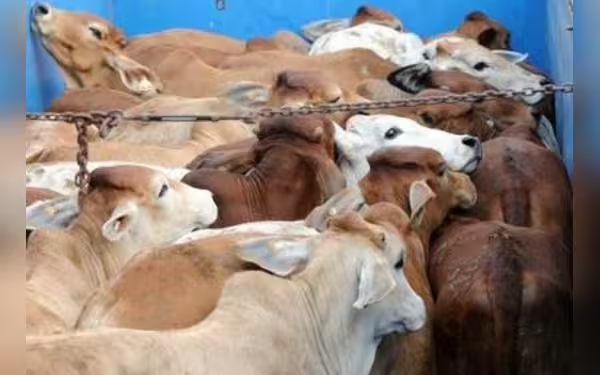Friday, October 4, 2024 05:23 AM
Cattle Feed Misrepresentation Scandal in Pakistan
- Company accused of mislabeling soybean imports.
- Allegations of tax evasion and regulatory violations.
- Concerns over food safety and market integrity.
 Image Credits: tribune.com.pk
Image Credits: tribune.com.pkControversy erupts over misrepresentation of soybean imports as cattle feed, raising concerns about trade practices and food safety in Pakistan.
The recent controversy surrounding the importation of soybean products has raised significant concerns regarding the integrity of trade practices in Pakistan. Reports indicate that a company has been accused of misrepresenting its imports from Mozambique and Nigeria. Instead of declaring these goods as soybean products, they were labeled as "residues of grain for cattle feed." This mis-declaration is not just a minor oversight; it is a serious allegation that could have far-reaching implications for the country's economy.
According to the filed cases, the owner of the company and the importer allegedly attempted to bypass mandatory documentation requirements. By undervaluing the goods, they may have evaded substantial taxes and duties, leading to considerable revenue losses for the government. Such actions not only undermine the regulatory framework but also threaten the livelihoods of honest traders who comply with the law.
This situation highlights a critical issue in the agricultural import sector. The practice of mis-declaring goods can create an uneven playing field, where those who follow the rules are at a disadvantage compared to those who engage in deceptive practices. It is essential for authorities to take stringent measures to ensure compliance and protect the interests of legitimate businesses.
Moreover, the implications of this case extend beyond just financial losses. It raises questions about food safety and quality control. When products are misrepresented, there is a risk that substandard or unsafe goods could enter the market, posing a threat to consumers. Therefore, it is imperative for regulatory bodies to enhance their oversight and enforcement mechanisms to prevent such occurrences in the future.
The allegations against the company serve as a wake-up call for all stakeholders involved in the importation of agricultural products. It is crucial for the government to strengthen its regulatory framework and for businesses to adhere to ethical practices. By doing so, Pakistan can foster a fair and transparent trading environment that benefits everyone, from farmers to consumers. The integrity of our trade practices is not just a matter of compliance; it is a cornerstone of our economic stability and growth.













